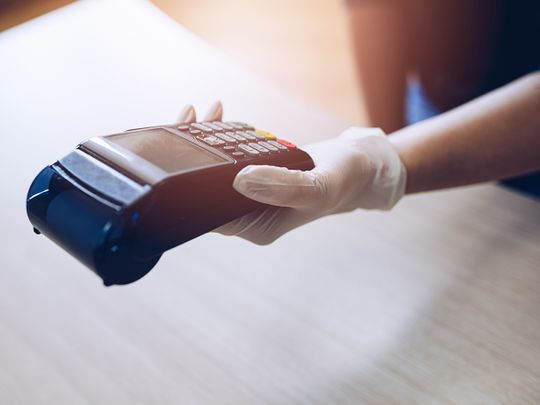
As the world faces the challenges of the COVID-19 pandemic, trends that existed before have been exacerbated in the world of banking and expectedly so, given the new reality of social distancing. Contactless payments and digital wallets, for instance, have exhibited tremendous growth in the UAE. In fact, the overall contactless transaction ecosystem has expanded.
COVID-19 has undeniably changed the way we live, work and shop. The emergence of digital wallets and contactless payments, is just a manifestation of this uncertain new world we live in today. As we continue to social distance, cashless payments and digital wallets are becoming the new norm. For instance, a study by Mastercard, showed that contactless payments have risen 100 per cent in the month of March due to COVID-19 in UAE.

At Mashreq Bank, we expect this trend to continue post the pandemic as customers become more accustomed to the convenience and security offered by contactless payment solutions.
In essence, not only does this trend facilitate a faster and more convenient transaction experience for customers, especially for lower-value every day spends, it also mitigates any risk that might come from touching POS systems, thus enhancing safety.
However, banks have paid extra attention to digital solutions long before this threat emerged. In this age of instant gratification and social media, it is no surprise that millennials, prefer to conduct almost all of their financial transactions online. And, this is where digital wallets come in. Mashreq customers, for example, have been able to register their cards on any of the digital wallets, including Apple Pay, Samsung Pay, Mashreq Pay and Google Pay for a long time. Wallet transactions at the bank have grown substantially – with 2018 in particular seeing a year-on-year growth of 180 per cent. Additionally, at Mashreq, all of the bank’s new credit and debit cards have been contactless for several years.
Mashreq has also noted that in the past year alone, the number of cashless transactions for customers increased by a staggering 280 per cent from January to July 2019 with contactless payments being 5-6 per cent of the mix, which grew to 10 per cent of total in fourth quarter of 2019.
Given the unprecedented situation that the world is now facing, wallet transactions have also expectedly grown even further. However, it is all about foresight. For example, on the acceptance front, Mashreq pioneered AliPay in the region – a move that brought convenience to Chinese travelers to the UAE, thus bolstering the economy. Mashreq was also the first bank in UAE to launch Samsung Pay in 2017 and among the first to launch Apple Pay.
Overall, Mashreq bank has led the way for contactless digital payments in the UAE for several years. Given the current situation, the bank has witnessed a 21 per cent growth in its contactless payments over the previous quarter. The numbers continue to see a month-on-month increase as more customers adopt digital wallets and contactless payment channels.
However, this is not merely a passing phase. At Mashreq Bank, we expect this trend to continue post the pandemic as customers become more accustomed to the convenience and security offered by contactless payment solutions. Ultimately, digital payments are a win-win for all parties; whether a business or consumer. They offer incentives such as making it quick, easy and secure for customers to use, while also saving time, cutting costs, and giving a direct stream of revenue for businesses. Going forward, future digital initiatives by the UAE government and banking industry to improve and upgrade infrastructure, data and networks, will be key to creating a thriving digital payments eco-system in the country – which will ensure more people are banked and that there is unparalleled convenience.
COVID-19 has created a new reality, and while there are many hardships around the world, it will also change some industries and the ways we live - and transact - for the better.












